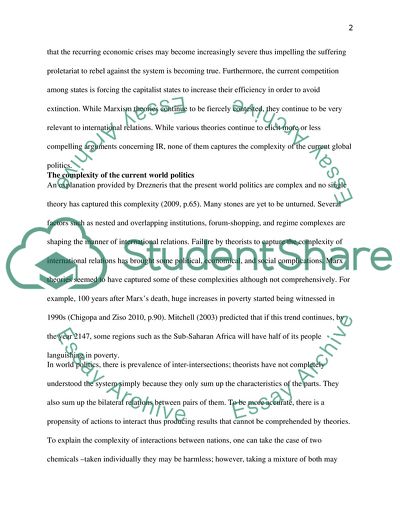Cite this document
(The Relevance of Marxism Theory in International Relations Coursework Example | Topics and Well Written Essays - 2500 words, n.d.)
The Relevance of Marxism Theory in International Relations Coursework Example | Topics and Well Written Essays - 2500 words. https://studentshare.org/politics/1859217-is-marxism-still-relevant-in-the-study-of-international-relations
The Relevance of Marxism Theory in International Relations Coursework Example | Topics and Well Written Essays - 2500 words. https://studentshare.org/politics/1859217-is-marxism-still-relevant-in-the-study-of-international-relations
(The Relevance of Marxism Theory in International Relations Coursework Example | Topics and Well Written Essays - 2500 Words)
The Relevance of Marxism Theory in International Relations Coursework Example | Topics and Well Written Essays - 2500 Words. https://studentshare.org/politics/1859217-is-marxism-still-relevant-in-the-study-of-international-relations.
The Relevance of Marxism Theory in International Relations Coursework Example | Topics and Well Written Essays - 2500 Words. https://studentshare.org/politics/1859217-is-marxism-still-relevant-in-the-study-of-international-relations.
“The Relevance of Marxism Theory in International Relations Coursework Example | Topics and Well Written Essays - 2500 Words”. https://studentshare.org/politics/1859217-is-marxism-still-relevant-in-the-study-of-international-relations.


